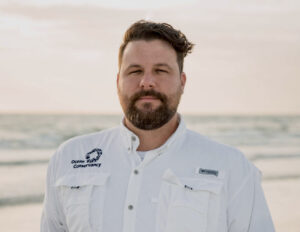By Jon Paul “J.P.’’ Brooker, Florida Conservation
Oil and water don’t mix.
That adage applies to protecting Florida’s precious ecosystems from oil drilling. Gov. Ron DeSantis and the Florida Legislature should permanently ban drilling for oil in or near any of the state’s aquatic ecosystems, including near our beaches, offshore on our reefs, or in our Everglades.
We have just seen another application to drill for oil near the Big Cypress Preserve. The Florida Department of Environmental Protection correctly acknowledged that would threaten highly sensitive aquatic ecosystems and upstream wildlife, and on Nov. 5 it denied Trend Exploration’s permit application. But companies have tried to explore for oil in the greater Everglades ecosystems for decades — and this recent application won’t be the last.

In a state where water quality has worsened and remains a top issue for voters, the last thing we need is the threat of oil spills in The Everglades or off our coasts. Red tide, Piney Point, blue green algal blooms, fish kills, 1,000 dead manatees, thousands of acres of seagrass lost — these severe water quality issues are reaching an apex in a state bordered on three sides by saltwater and filled with springs, lakes, streams and swamps.
We’ve seen constant attempts to prospect for oil in the Gulf of Mexico and the South Atlantic. Those attempts are regularly shut down, because most Floridians don’t want oil drilling off our coasts, spoiling our majestic views, threatening our world-class fisheries, and damaging our iconic coastal ecosystems and beaches that contribute billions in economic impact to the state. Floridians want our Everglades, oceans and coasts to be oil free.
A drop of water starting in the Kissimmee River can make its way into Lake Okeechobee, through The Everglades and its related ecosystems, and out to Florida Bay, the Florida Coral Reef Tract, and the open ocean. These ecosystems are interconnected, and their fates are intertwined.
A failure of an oil drilling site in the western Everglades isn’t just a heartbreaking tragedy for panthers and other upland animals. It’s a potential calamity for the seagrasses and redfish and tarpon that need clean freshwater sources to thrive in Florida Bay. That same drop of water making its way through South Florida watersheds can wreak havoc on our reefs if it’s tainted by oil.
Gov. DeSantis has emphasized protecting and restoring our state’s legendary waters. He has championed Everglades restoration efforts, steered millions to the Indian River Lagoon restoration, and embraced the Clean Waterways Act. Affirming a ban on oil drilling in The Everglades and off our coasts would affirm his commitment to providing Floridians with clean, abundant water for generations.
This piece was initially published in the Fort Myers News-Press.
Jon Paul “J.P.” Brooker is the director of Florida Conservation and lawyer for Ocean Conservancy, the nation’s oldest marine conservation non-profit organization. He is a sixth generation Floridian.
“The Invading Sea” is the opinion arm of the Florida Climate Reporting Network, a collaborative of news organizations across the state focusing on the threats posed by the warming climate.



